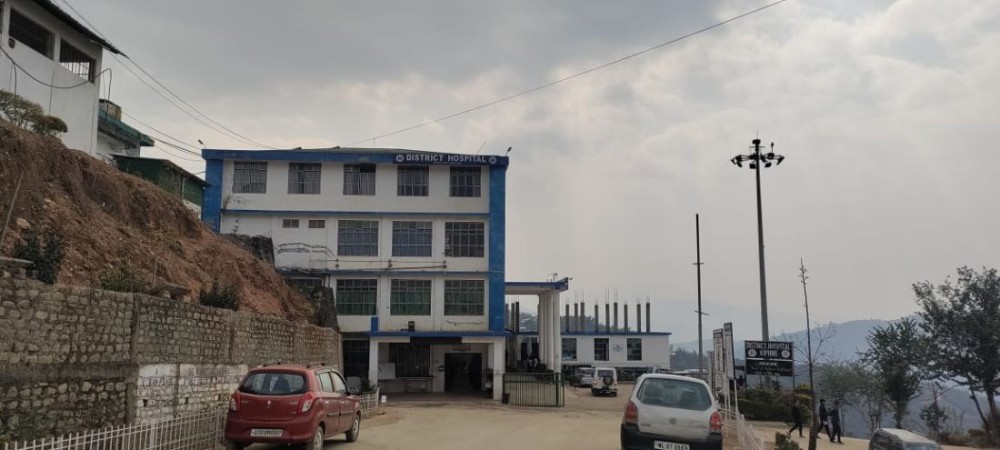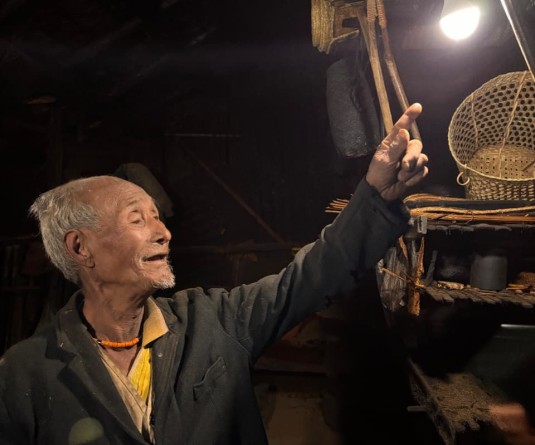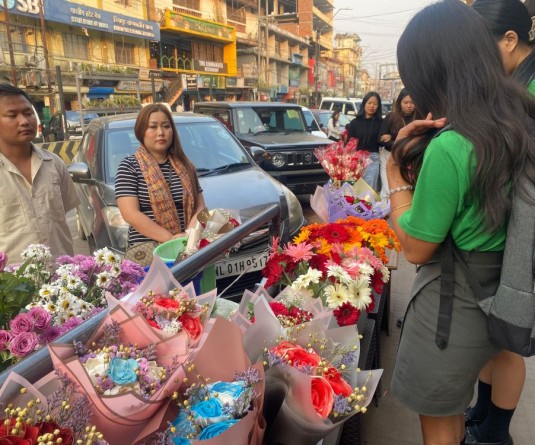A view of District Hospital Kiphire. (Morung Photo)

P Achumse Yingbithongru
Kiphire | February 24
Despite modern medical equipment being available at the District Hospital Kiphire (DHK), a severe shortage of doctors and support staff is crippling healthcare services in this remote district, which has a population of around 74,033, according to the 2011 Census.
Though the hospital is equipped with advanced facilities, a lack of trained technicians has rendered much of this equipment unusable, forcing many patients to travel long distances for treatment in Kohima or Dimapur.
As an agrarian society, nearly 70% of Kiphire’s population depends on agriculture as its primary income source. With growing health concerns tied to changing lifestyles and limited government intervention to address staffing shortages, residents face an economic burden beyond their earning capacity, further deepening the district’s economic disadvantages.
“Comparatively, facilities at DHK have improved in the past four to five years with the introduction of the National Health Program, but the shortage of manpower has made these improved facilities useless,” said Dr Nungotso Vero, BDS, MDS, Senior Medical Surgeon at DHK, in an interview with The Morung Express.
“DHK is the first referral point for patients in the entire district. If you don’t have enough manpower to diagnose patients, what is the use of referring them to other districts?” Vero added. He emphasized that while the government continues to provide equipment, without adequate staffing, these resources are effectively rendered useless.
Critical staff shortages
“We have the necessary equipment at DHK, but what’s the use if we don’t have enough general doctors, medical officers, eye specialists, surgeons, anesthesiologists, radiologists, ENT specialists, ICU staff, assistant matrons, and Grade-IV staff?” Vero said. “It becomes a herculean task to properly cater to the needs of the people.”
The shortage has been exacerbated by the government’s failure to send replacements for doctors and staff who have been transferred or posted elsewhere, further straining services.
Insurance schemes
Vero acknowledged that schemes such as the Chief Minister Health Insurance Scheme (CMHIS) and the Ayushman Bharat health card have helped ensure better access to quality healthcare, particularly for economically weaker sections.
“These schemes have reduced the financial burden, improved access to healthcare, and encouraged people to use public health services,” he said.
Land Encroachment
One of the pressing challenges facing DHK, according to Vero, is the encroachment of government hospital land by private individuals.
“If the government doesn’t address land encroachment now, it will become a stumbling block for future development activities,” he warned. “The need for healthcare facilities will only grow as the population increases.”
Outsourcing
In response to staff shortages, DHK has begun outsourcing workers to help maintain healthcare services for Kiphire residents. Vero noted that salaries for these outsourced staff members are paid from the hospital’s available funds.
“Outsourcing has become necessary for us to continue providing basic healthcare services in the district,” he said.






